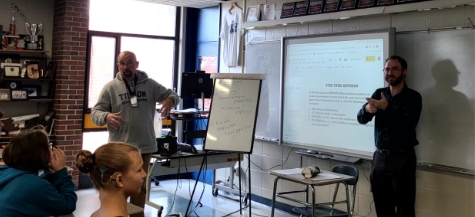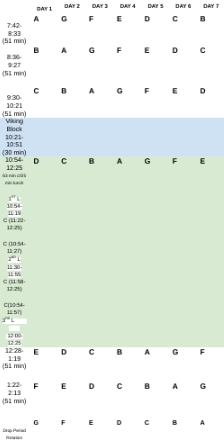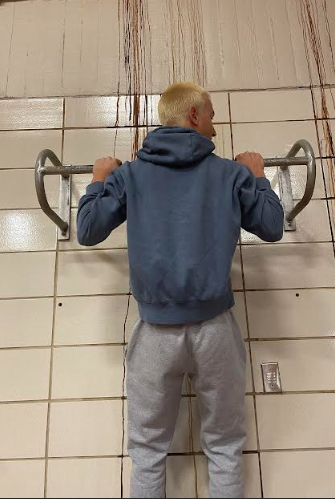Signing into triton. New American Sign language interpreter

Mr. Colbert giving his morning greeting and Mr. E signs what he’s saying to the deaf student in front of him
As class begins in English teacher Joseph Colbert’s room, another teacher follows him around, signing to a deaf student, using not only his hands but also his body and face to convey what Colbert is saying.
Mr. Elden Bollinger, also known as “Mr. E,” is the new American Sign Language interpreter at Triton High. tagging along behind Colbert throughout class, and he plays a very important role.
”He fits into the class easily,” said Colbert.
This is the first time in recent memory that an ASL interpreter has worked in Triton classrooms, so the Triton Voice got an inside view on Mr. E and his work.
Mr. E started in Colbert’s class on day one and has been in every day since, indicating even slight emotional differences in what Colbert says so his student can understand. For example, Colbert would make a joke and a student would be able to see on Mr. E’s face expressing what he was signing was a joke to the student. He is completely focused on the student.
Even having a student reporter watching him in the classroom Bollinger didn’t seem to miss a beat, even though many don’t understand ASL .
Colbert said he fits nicely into the class, being with him since day one of this year. He says it may get crowded sometimes with them both up there but they get along anyway and he positively affects the classroom.
Bollinger went to college for a degree in liberal arts and wanted to teach English. In order to gain this degree he was required to take a language course. He said if this was not a requirement he wouldn’t be teaching ASL today, and he originally wanted to take Hebrew to aid in his plan to be a teacher. But the college didn’t offer Hebrew, so he chose from a list almost at random. He decided on American Sign Language. This seemed interesting to him as it wasn’t like the rest of the options.
“I’m a writer,” Bollinger said. He enjoys poetry and lyrics and was interested in how he could convey this art form in a more visual and expressive way. Early into the class, he decided that a career in ASL interpreting was what he wanted. He explains the culture of the deaf community. They are blunt, he said, “they don’t fill the conversation with a whole bunch of platitudes or unnecessary niceties.” More thought is put into what they will say as the words are not spoken and instead need to be signed, which is arguably more tedious.
Much like journalism, an economy of words is used in ASL. This bluntness appealed to Bollinger. He dropped his plans to be a teacher and decided to be an ASL interpreter. To make this happen, he and his program coordinator changed his plans and he went to North Essex Haverhill for an associates degree, but the requirements for his field changed mid-program. His program coordinator scrambled to try and make the two year program into a four year by joining his two year with another class from Framingham University. They were able to get him to graduate with two more years of ASL training and a bachelor’s degree.
Over all Mr. E ended up where he first wanted to be a teacher but he found a different path into the classroom.

Hello, My name is Mason Scolamiero I am a senior here at Triton High School, I have 2 siblings, one of them is older (20) his name is Hunter and the younger...




